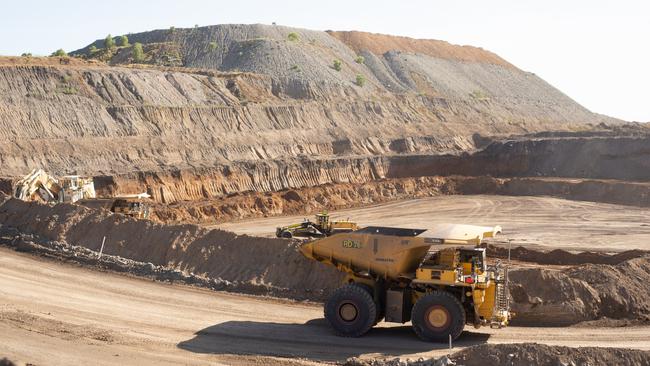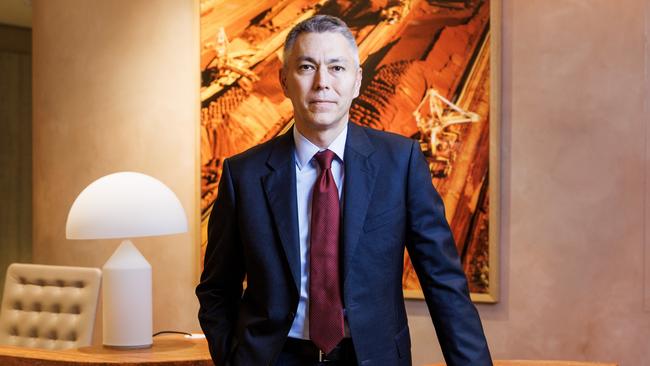Investor grumbles as BHP coal mine sale rumbles; Brian’s all heart when it comes to AI advice


BHP’s sale of its Daunia and Blackwater coal mines in central Queensland has drawn a Vegas buffet of interested bidders and a couple of wildcards, their reasons for bidding as mysterious and confounding as that cocaine left at the White House.
They’re cashed up or sovereign backed and they all seem to be clamouring to acquire assets that BHP is plainly eager to flog. It’s why CEO Mike Henry all but pooh-poohed the mines during an investor briefing in December, when he said their disposal would give the company a “sharply concentrated portfolio on only the best of the best quality coking coals”. In other words, winnowing the chaff, he seemed to be saying.

The successful buyer also faces the small matter of the Queensland’s government’s increase to coal royalties, which BHP’s asset president Mauro Neves said in February was a “contributing factor” in the decision to sell. So there’s that, and there’s also an expected drop off in the value of metallurgical coal exports, as noted by the Department of Industry in its riveting quarterly report on resources and energy, published earlier this month. Margin Call read it so you don’t have to – it says those exports could fall from an estimated $60bn in FY23 to $42bn in FY25.
And yet the bidders remain! Those in the final round include Stanmore Coal, its Indonesian rival BUMA, Peabody Energy, Whitehaven Coal, the sovereign-backed Yancoal, and Coronado Energy, which is rumoured to be going soft on the deal.
The actual news here is that significant shareholder unrest is building at Whitehaven, where a group of investors are so energised by their aversion to these mines that they’re probably going to try block the transaction if it goes ahead.
That’s a big ‘‘if’’, of course, but Margin Call understands the action could take the form of a shareholder vote to nix the deal, or to smash the competency of the board, or both. You can be assured that letters are flying and lawyers are being engaged, suggesting that Whitehaven isn’t flirting anymore and its interest is competitive enough to rival frontrunner Yancoal.
We put the shareholder angst and the big talk of intervention to the company but a Whitehaven spokesman declined to comment.
Brian has the answers
“Virtual Brian” is the name given to the digital leadership coach that’s available on Brian Hartzer’s website, The Leadership Star, named after the management book he published in 2021. Send your questions to Virtual Brian and, much like the dreadful ‘‘Clippy’’ of MS Word notoriety, it will reel out guidance using the generative power of AI.
Talk about leading with the chin: one of Hartzer’s suggested questions is, “What strategies can I use to manage a crisis effectively?” Hartzer, of course, led Westpac at a time when it was linked to 23 million breaches of anti-money laundering legislation, including suspicious payments channelled to Southeast Asia for child exploitation purposes.


The reputational shattering that followed cost Hartzer his job as CEO in 2019, along with that of Westpac chair Lindsay Maxsted, who brought forward his retirement. Hartzer’s strategy at the time involved telling executives hours before being deposed that the scandal was “not an Enron or Lehman Brothers” and that middle Australia would hardly care so “we don’t need to overcook this”. Surely Virtual Brian would have stopped him from saying that.
Thus an obvious question for VB is whether or not one should prioritise investment in AML-CTF measures. Margin Call typed out the question and, after much cogitating, Virtual Brian said: “Ah, the decision to invest more in anti-money laundering and counter-terrorism financing is a critical one for any bank. As a leader, it is your responsibility to prioritise the safety and integrity of your organisation and its operations.” No doubt a lesson Hartzer absorbed in the years after his resignation.
And while we’re on Hartzer, it appears he’s also stepped down as a senior adviser at Sayers Group, quietly ending his two-year consulting stint. That was in March, bringing to mind potential links with Nicole Scurrah’s departure as one of the firm’s partners, as reported by this column last month.
But while it seems Scurrah left over some irreconcilable differences with the firm’s founder, Luke Sayers, Hartzer appears to have departed on more amicable terms, or so we’re told.
ASIC exodus
Redundancies on offer at the Australian Securities & Investments Commission are being taken up in impressive numbers by senior managers, their hands going up in cat-quick fashion, apparently.
Margin Call hears that ASIC put out expressions of interest to staff some weeks ago for limited redundancies with an expectation that about 100 officials will tap themselves on the shoulder to leave.
ASIC confirmed as much, saying it had undergone an organisational restructure and was expecting the inevitable departure of personnel. Some 2000 staff are employed at the corporate regulator.
“ASIC has also commenced a limited voluntary redundancy program,” a spokesman said. “These steps are necessary in order to operate more efficiently, meet its budget given its wide remit of responsibilities and enable ASIC to focus its resources to remain an effective law enforcement agency and regulator.”
Clearly the ASIC line is to lean up the organisation but those on the inside aren’t happy about cutting too deep. It’s understood the program is targeted at the managerial levels across numerous departments. That said, we’re hearing some divisions are feeling decimated.







To join the conversation, please log in. Don't have an account? Register
Join the conversation, you are commenting as Logout